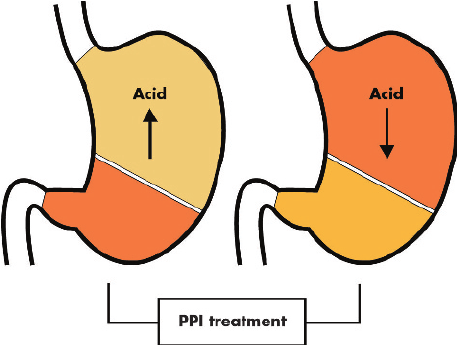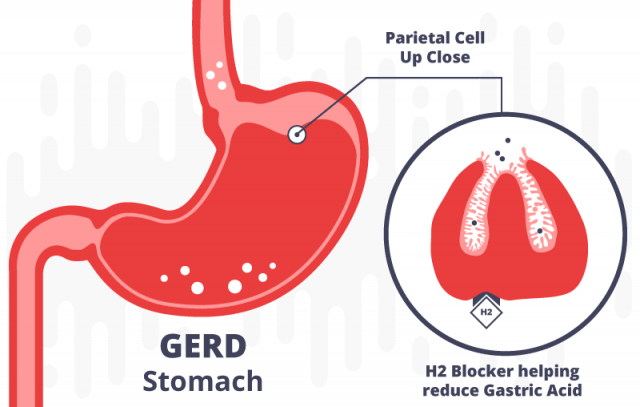Adderall’s negative effects can extend beyond attention and energy, affecting your digestive system and resulting in issues like acid reflux. Taking Adderall may relax the Lower Esophageal Sphincter (LES), a muscle that normally holds stomach acid in its right position.
Which means, you might experience heartburn or discomfort as acid moves up into the esophagus.
In this article, we’ll dive into some of the Adderall side effects and what causes them along with a few proven treatments and remedies to prevent Adderall-induced acid reflux.
Table of Contents
Adderall Side Effects: Acid Reflux – Causes, Symptoms, and Remedies
Acid reflux is one of the less well-known side effects of Adderall, but it may have a significant impact on persons with ADHD on a daily basis. Stomach acid can reflux into the oesophagus, producing discomfort and irritation. This type of condition is also known as Gastroesophageal Reflux Disease (GERD).
Although anybody can get acid reflux, Adderall users may be predisposed to the ailment due to the drug’s effects on the digestive tract. The effects of Adderall on the digestive tract must be studied to understand how the medicine might produce acid reflux.
Here’s a brief overview of everything you should know about acid reflux one of Adderall side effects.
| Topic | Description |
|---|---|
| Adderall | Adderall is used to treat ADHD and narcolepsy. The effects can be beneficial when taken as prescribed, but they can be harmful if used without medical supervision. |
| Acid Reflux | A digestive disorder that causes heartburn and regurgitation |
| Causes | Stimulants in Adderall can relax the lower esophageal sphincter, allowing stomach acid to flow back into the esophagus |
| Symptoms | Heartburn, regurgitation, chest pain, difficulty swallowing, nausea, and vomiting |
| Remedies | Antacids, H2 blockers, proton pump inhibitors, lifestyle changes (e.g. avoiding trigger foods, losing weight, quitting smoking) |
How Adderall Can Cause Acid Reflux
Adderall stimulates the central nervous system, causing it to release more neurotransmitters such as norepinephrine and dopamine. Neurotransmitters can affect the lower esophageal sphincter (LES), a muscle in the digestive tract that keeps stomach acid from leaking back into the esophagus.
Not just that, Adderall may increase the production of stomach acid. Stomach acid is necessary for digestion because it degrades food and kills microorganisms. Acid reflux occurs when stomach acid flows back into the esophagus.
Acid Reflux Symptoms
The following list of mild to severe acid reflux symptoms can be experienced:
- Heartburn: A burning sensation in the chest, often called heartburn. Heartburn usually happens after eating and might be worse at night or while lying down.
- Regurgitation: Backwash of food or sour liquid in the throat. The feeling of food or acid resurfacing in the mouth.
- Chest pain: A throbbing or sore spot in the chest.
- Cough: A persistent cough that is unrelated to a respiratory infection is referred to as a chronic cough.
- Sore throat or hoarseness: Acid reflux-related vocal cord irritation.
- Nausea & Vomitting: You might experience nausea or vomiting after meals. Adderall can increase stomach acid production and relax the lower esophageal sphincter (LES), which may lead to the reflux of stomach acid into the esophagus, worsening these symptoms.
ADHD sufferers may find it challenging to focus, concentrate, and carry out daily tasks as a result of these symptoms, which can have a substantial impact on their quality of life. For those who have ADHD, acid reflux can have a substantial effect.
Besides that, ADHD symptoms including impulsivity and trouble focusing can be made worse by acid reflux. Acid reflux can cause pain & discomfort that can make it difficult to concentrate on work and increase irritability and restlessness.
Managing Acid Reflux While Taking Adderall
It is critical to obtain a diagnosis and treatment for acid reflux as one of the side effects of Adderall to control symptoms and improve overall health.
A thorough diagnosis allows healthcare experts to develop an effective treatment strategy that addresses the symptoms of acid reflux and ADHD. The major goal of therapy is to reduce stomach acid production and prevent it from refluxing back into the oesophagus.
Treatment options include medication, lifestyle adjustments, and, in certain cases, surgery.
Lifestyle Changes
Avoid trigger foods
Certain meals, such as those that are spicy or heavy in fat, might worsen acid reflux symptoms. Recognising and avoiding trigger foods might help reduce symptoms.
Eating more often and in smaller quantities

Eating more often and in smaller quantities throughout the day can help avoid overproduction of stomach acid and reduce the risk of acid reflux.
Bed Head Elevation

Raise the head of the bed a few inches before you sleep to help prevent stomach acid from refluxing back into the esophagus. I’d recommend opting for wedge pillows that are easily accessible on Amazon that offers the right support you need for your back and head while sleeping.
Weight loss
Losing extra weight may help ease stomach discomfort and lower the chances of acid reflux. Besides that, you can also use medications to lower stomach acid production.
Medication
Typical drugs for acid reflux include:
Proton pump inhibitors (PPIs)

PPIs lessen the production of stomach acid & can help patients with acid reflux symptoms in the long run. You can buy our favourite PPIs for acid reflux on Amazon here.
H2 blockers

H2 blockers lessen the production of stomach acid and may offer momentary relief from symptoms associated with acid reflux. You can buy our favourite H2 blocker for acid reflux on Amazon here.
Surgery
In certain cases, surgery may be necessary to treat severe or persistent acid reflux.
A fundoplication involves wrapping the top section of the stomach around the LES to reinforce it. Another surgical option is LINX, which is positioned around the LES to prevent acid reflux. It is critical to consider any potential interactions with acid reflux drugs and ADHD medications when treating acid reflux in Adderall users. Certain drugs, such as proton pump inhibitors (PPIs), may impair Adderall’s absorption, reducing its effectiveness.
3 Natural Remedies To Cure Adderall-Induced Acid Reflux
The following are a few natural solutions that could help reduce acid reflux symptoms:
Ginger
For centuries, ginger has been used to ease gastrointestinal pain & lower inflammation. It can be drunk as a tea or mixed into food.
Aloe vera juice
Aloe vera juice contains anti-inflammatory and esophageal relaxing effects. It is critical to select aloe vera juice designed for internal consumption.
Slippery elm
Slippery elm is a herb that coats and protects the esophagus from hydrochloric acid. It comes in tablet or powder form. Although treating acid reflux and ADHD symptoms together might be tough, it is doable with a comprehensive treatment plan.
Frequently Asked Questions (FAQs)
Can Adderall cause acid reflux?
Yes, Adderall can cause acid reflux as a side effect. This is because it can increase the production of stomach acid, which can lead to irritation and inflammation of the esophagus.
Is acid reflux related to ADHD?
Resolving reflux at the root cause in the infancy days massively reduces the risk of ADHD later in life. And before you ask, there is no evidence to support the connection between reflux and ADHD.
How can I manage acid reflux while taking Adderall?
Acid reflux can be treated with lifestyle changes such as avoiding trigger foods, losing weight, and quitting smoking. Medications such as antacids, proton pump inhibitors, and H2 blockers can also be used to reduce symptoms.
Can Adderall and acid reflux medications be taken together?
It is generally safe to take Adderall and acid reflux medications together, but it is important to consult with a healthcare provider before doing so. They can provide guidance on the best treatment options for each individual case.














